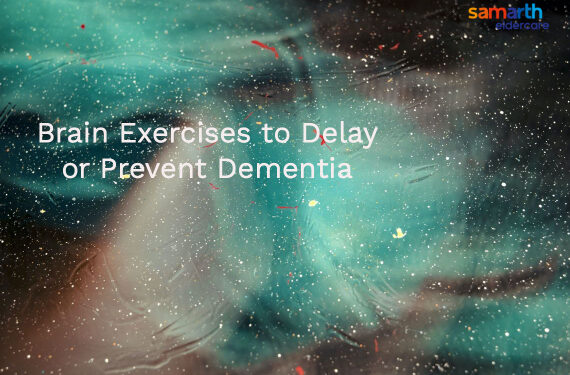
Join Now >
A lot of research is happening on dementia, especially Alzheimer’s disease. It is the one fear that many people hold within as they age. The fear of losing one’s memory and becoming completely dependent on others for everyday activities is terrifying, to say the least. What we know so far is that there is no cure for dementia. While studies have tried understanding the changes in the brain structure and why it happens, so far, we also do not have any concrete answers as to why it occurs or what can be done to avoid it completely.
However, few studies have focused their efforts on trying to understand if certain activities, ways of life, supplements, etc., can help delay or prevent dementia. Here are some credible, interesting findings on dementia studies from across the world.
- Link found between a diet high in ultra-processed foods and a higher risk of dementia.
- Vigorous physical activity, whether done for leisure, regular household activity, or part of daily work, is linked to a lower risk of dementia.
- Taking a multivitamin daily may help slow cognitive decline in older adults.
- Walking 9,800 steps daily with higher intensity would be optimal for reducing dementia risks.
One other insight from these studies that has been making the rounds is to keep up the cognitive capabilities through brain exercises. The brain is getting most affected; therefore, few studies have focused on activities that help sharpen cognitive capabilities.
Do brain exercises help?
Medical research suggests that when people keep their minds active, there are fewer chances of cognitive decline. The various brain activities based on this deduction include puzzles based on memory and reasoning skills. While it doesn’t say that these brain exercises can prevent Alzheimer’s disease, it indicates that possibly the symptoms may get delayed because the brain has been kept active. Therefore, people with active minds are likely to spend less time with cognitive decline.
An active mind reduces the brain damage that can happen due to Alzheimer’s disease. It also supports the growth of new cells. Also, there is prompt messaging among the cells. Scientists believe there is some link between the strengthening of messaging between cells due to brain activity that is possibly helping prevent the delay of the disease onset. There is also a chance that the new cells being generated act as reserve cells.
Brain exercises that help
So, what brain exercises should one keep doing to help stay mentally active? For one, start with puzzles such as word puzzles that test reasoning skills, jigsaw puzzles, crosswords, Sudoku, memory games, etc. Spend at least fifteen to twenty minutes every day doing these activities. The next best thing to keep your mind active is to learn something new. It could be a skill, a language, a musical instrument, or even a formal educational course. These help keep your brain sharp.
There are fun ways to keep your mind sharp as well. Play some board games with your grandkids. It could be any board game like Ludo, Cluedo, Checkers, Monopoly, or Business, or you could try Chess for the best brain activity. If nothing, try some card games like Solitaire even. Studies have proven that some video games, Angry Birds, Super Mario, Solitaire, etc., helped improve the cognitive health of the older adults who participated in the study. Even some amount of regular reading and writing can help improve your cognitive capabilities. Even a mild exercise activity such as Tai Chi has been found to improve connectivity in our brain which can help improve cognition.
These days everything is online and available through apps on your mobile. There are word games like Wordle, Dordle, Quordle, Octordle, etc., that can keep you busy for half an hour a day. If you love Math, you could try teaching kids or simply pick up and solve some sums every day. Even drawing maps or identifying different tastes is a fun activity to help keep your brain sharp.
The overall message is that if you got to keep your brain healthy, you have got to use it. Or you may lose it. There is good reason to start exercising our brains and stay fit mentally to keep dementia at bay. Get going, start solving, and start learning!











